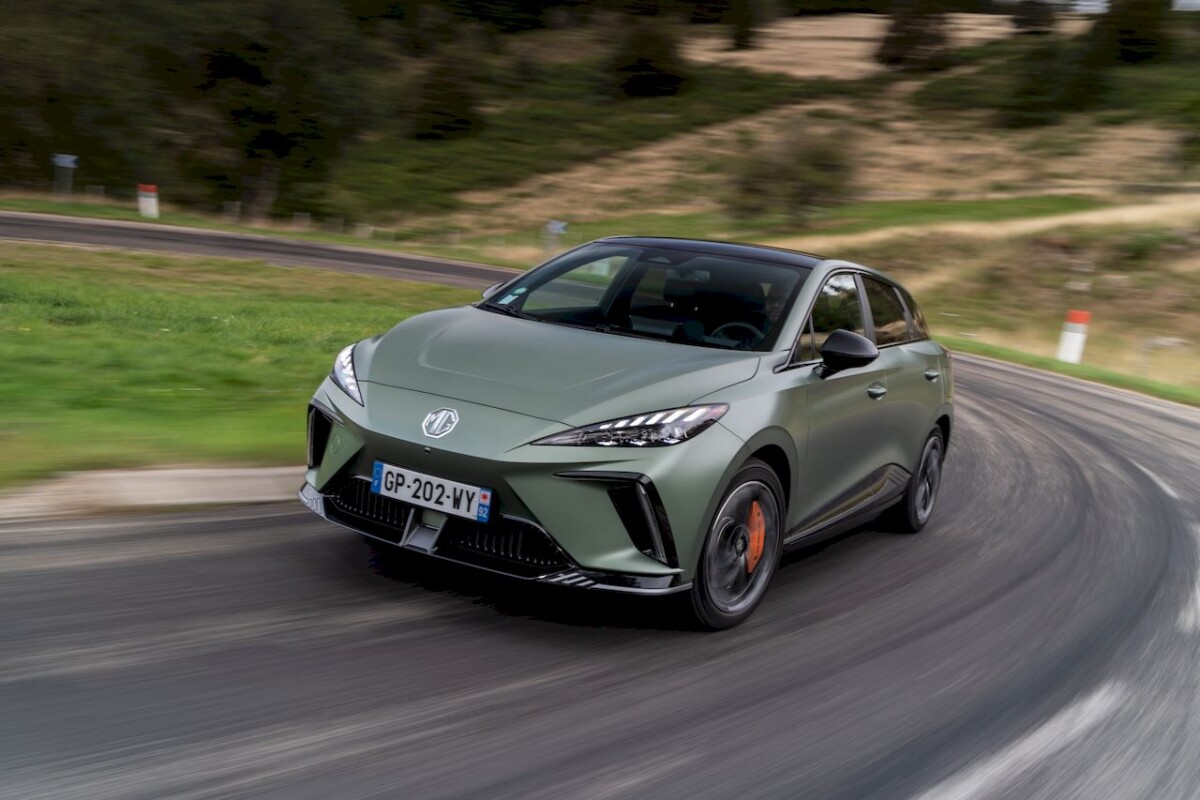Jordan Bardella, candidate for the European elections, attacks electric cars. Let’s sort out the truth from the falsehood in his statements and explore the real challenges of the energy transition in the automotive sector.
Jordan Bardella, candidate for the 2024 European elections for the National Rally, expressed repeatedly criticized electric cars.
While some of these concerns are legitimate, it is important to disentangle fact from fiction and provide nuance to better understand the transition to electric vehicles.
“All-electric will lead to an increase in bills for the acquisition cost and the repair cost”
It is true that electric cars generally cost more to purchase than their thermal equivalents. However, one must consider the total cost of ownership (TCO), which includes operation and maintenance costs. Electric vehicles are then cheaper to use on a daily basis, thanks to reduced energy and maintenance costs. Regarding purchasing, government aid and tax incentives can reduce the price gap between electric and thermal vehicles.
Regarding repair costs, electric vehicles have fewer moving parts, which reduces the risk of breakdowns and maintenance costs. However, battery replacement can be expensive, although battery life is improving and costs are increasingly falling.
Finally, according to the International Energy Agency (IEA), the TCO of electric vehicles should become competitive with that of thermal vehicles by 2025-2030, or even earlier in certain cases.
“Increase our dependence on China”
China is indeed a major player in the production of batteries and rare earths, essential materials for electric vehicles. However, Europe and the United States are investing heavily in the research and development of alternative technologies and local battery production. Additionally, efforts are being made to recycle used batteries and reduce dependence on rare earths.
An example ? The Lithium de France company will invest 44 million euros to exploit lithium deposits in Alsace. Enough to reduce Europe’s dependence while producing less polluting batteries for electric cars.

Without forgetting the fact that sodium batteries (completely devoid of lithium and cobalt) are starting to develop at great speed.
Note also that batteries are recycled very well, contrary to popular belief. Suez, for example, is developing an innovative process to “ to achieve, or even exceed, the requirements of future European regulations in terms of recycling, with use of natural resources and a reduced carbon footprint”. For the record, Europe imposes from 2027 recycling of 90% of cobalt, copper and nickel and 50% of lithium.
The location of this site was not chosen at random, since the city located in the north of France will also host the Envision factory, which will produce batteries for Renault’s future electric cars.

Others want to go even further, like the Chinese giant CATL. The latter plans to build several recycling plants in Europe in order to reach 99% recovery over the coming years.
Moreover, a German start-up, specializing in the recycling of lithium-ion batteries, has started delivering recycled lithium to its first customers.
It is also important to note that the dependence on oil imports for thermal vehicles is not negligible. The transition to electric vehicles can help reduce this dependence and promote energy independence.
Finally, the European Union has not remained idle: the European Union recently unveiled a series of measures to counter the invasion of these Chinese brands, while it also plans to further increase customs duties.

For its part, France is acting on its own scale by having removed the ecological bonus for cars produced in China, such as the Tesla Model 3, the Dacia Spring, the BYD or the MG4, among others.
“Disorganize industrialists, many industrialists who are turning back”
It’s true that some automakers have faced challenges in their transition to electric vehicles. However, many major players in the automotive industry have announced massive investments in the electrification of their range and the development of new technologies.
While the transition to electricity poses challenges for traditional manufacturers, it also offers significant new opportunities. These strategic movements do not reflect a decline but rather a necessary adaptation to a changing market.
“Apple spent $1 billion on the car, Apple is now backtracking”
As for Apple, the company has never officially confirmed its intention to produce an electric car. Rumors surrounding the “Titan” project rather suggest an interest in autonomous driving technologies and mobility services. Even if it is true that the Titan project would have been abandoned.
But this abandonment would not be linked to the cost, but rather to the delay taken by Apple. Competition is already in place, with Tesla or newcomers from Asia, like Xiaomi, Sony, Nio, Xpeng and so on.
Note that these technological projects of this scale are often subject to readjustments depending on technological advances and market conditions, which is typical of project management at Apple.
“Many electric car rental agencies are turning back because it’s expensive”
It’s true, some rental agencies are having difficulty integrating electric vehicles into their fleet, due to the cost of acquisition and the constraints linked to charging and repairs.
If Hertz decided to get rid of its Teslas, at very low prices, it is because these cars would cost too much to repair.
If the costs of reconditioning an electric car are generally lower, this is not the case for those of the American brand. On average, it costs $5,552, compared to $4,474 for other manufacturers.
“I am campaigning for the repeal of this decision to ban the sale of thermal vehicles by 2035.”
It is important to emphasize that this proposal does not mean the end of thermal vehicles in circulation, but rather the cessation of the sale of new vehicles emitting greenhouse gases. Used vehicles and existing vehicles will be able to continue to circulate.
Finally, let us remember that European policy is a strong commitment against climate change. Repeal could not only compromise environmental objectives but also isolate Europe technologically and economically in a global market moving towards electricity.
Why what Jordan Bardella says is dangerous
Criticisms against electric cars, like those voiced by Jordan Bardella, can really set back our efforts to combat climate change and reduce our dependence on fossil fuels.
Electric cars are key to reducing greenhouse gas emissions, especially in the transport sector which pollutes a lot. If we slow down this transition, we risk continuing to depend on fossil fuels and missing out on the commitments made, such as those of the Paris agreement.
In addition, this resistance to change prolongs our dependence on oil which must be imported, which is neither economical nor safe. Burning these fossil fuels also releases fine particles which, according to Santé Publique France, prematurely kill 40,000 people per year in France and reduce the life expectancy of French people by eight months.
France also has everything to gain from promoting green electricity. Thanks to its expertise in nuclear power and its investments in renewables, it could become a leader in the production of clean electric vehicles. This would not only help reduce our carbon footprint, but also strengthen our automotive industry and position France as a leader in the international market.
In short, Jordan Bardella’s speech against electric cars is dangerous, because it ignores environmental issues, public health, innovation, competitiveness and energy independence, and risks slowing down the transition to a more sustainable mobility model. and environmentally friendly.
